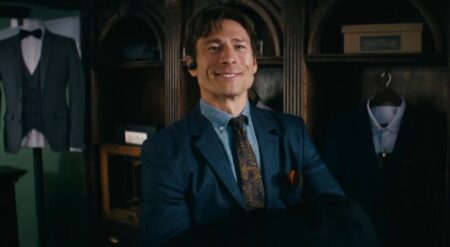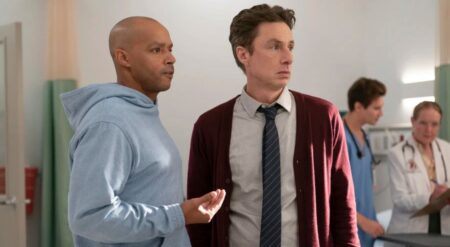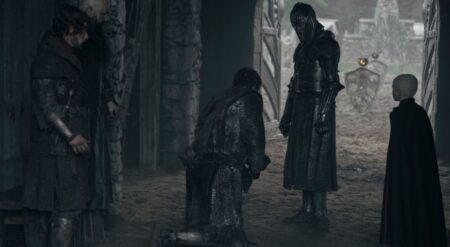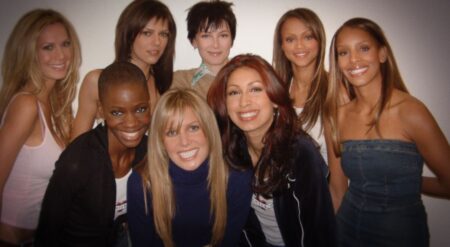Hierarchy (Hairaki) aims to make its definitive mark on the rich-poor student genre in the Kdrama world. The latest Kdrama series to arrive on Netflix, the series follows a pretty standard set-up, with a bunch of privileged teens against one scholarship student. What proves to be the twist of the series is the mystery element, giving writer Chu Hye-mi and director Bae Hyun-jin room to play around with. Unfortunately, despite its beautiful visuals and equally beautiful cast, there’s something missing amidst the glamour.
After a mysterious and fatal opening, no time is wasted in establishing the wealth of the world viewers will enter. Hierarchy is set at the expansive and illustrious Jooshin High School. The cream of the crop attends this school, with everyone’s roles clearly defined for them. The king of the school is Kim Rin-an (Kim Jae-won), the successor of the Jooshin Group. The queen is Jung Jae-yi (Roh Jeong-eui), the eldest daughter of the Jaeyul Group, who also rivals the Jooshin Group.
Yoon He-ra (Ji Hye-won) is the popular girl with her bubbly personality, while Lee Woo-jin (Lee Won-jung) is sort of just there as eye candy. The four of them make up the “royal court” of Jooshin High School. Their power and influence are hard to believe, given how two-dimensional the bulk of the characters are sculpted, if they manage to eke out an identity at all. As the epicenter of attention at Jooshin High, viewers will likely be asking themselves why, with the likely exception of He-ra, who has some slight levels of charisma in her personality.
The arrival of scholarship student Kang Ha (Lee Chae-min) shakes things up. His arrival illustrates the oft-predictable class divide between the haves and have-nots. Passive aggressive behaviors from students who refuse to actively spell out the rules until things escalate create an inhospitable and frustrating environment for Kang Ha. But Chae-min infuses his underdog with such pleasant energy that it provides a much-needed breath of fresh air amidst all the artifice.
Hierarchy has to compete against others in its genre.

Hierarchy has much stacked against it. Following a familiar story and genre to Kdrama viewers, inevitable comparisons are likely to arise. When it comes to story, characterization, and performance, the series pales in comparison to its more successful predecessors. It fails to really grasp what makes these stories hit with viewers. You have to have characters that make you care enough to either cheer them on or pray for their downfall. Most characters in Hierarchy barely resonate.
Kang Ha and Jung Jae-yi have the more compelling storyline and stakes. Kang Ha has a direct link to the mystery of Hierarchy‘s cold opening. With his position tenuous in the school, with a Principal who makes it no secret that the scholarship students are merely there to make the school look good, there’s a ticking time clock in figuring out the mystery. It makes it all too easy to back him.
The more privileged Jae-yi arguably could be painted with the unlikable heroine brush. There’s nothing wrong with unlikable characters; they make things interesting. Compared to the rest of the cast of characters, her personality quirks are broken down and explained, adding much-needed depth to a rather standoffish character. Raised to never show emotion by her abusive father, actor Roh Jeong-eui has to find ways to let those cracks slip through. And she succeeds, creating an emotionally vulnerable person in the process.
Hierarchy just lacks depth.
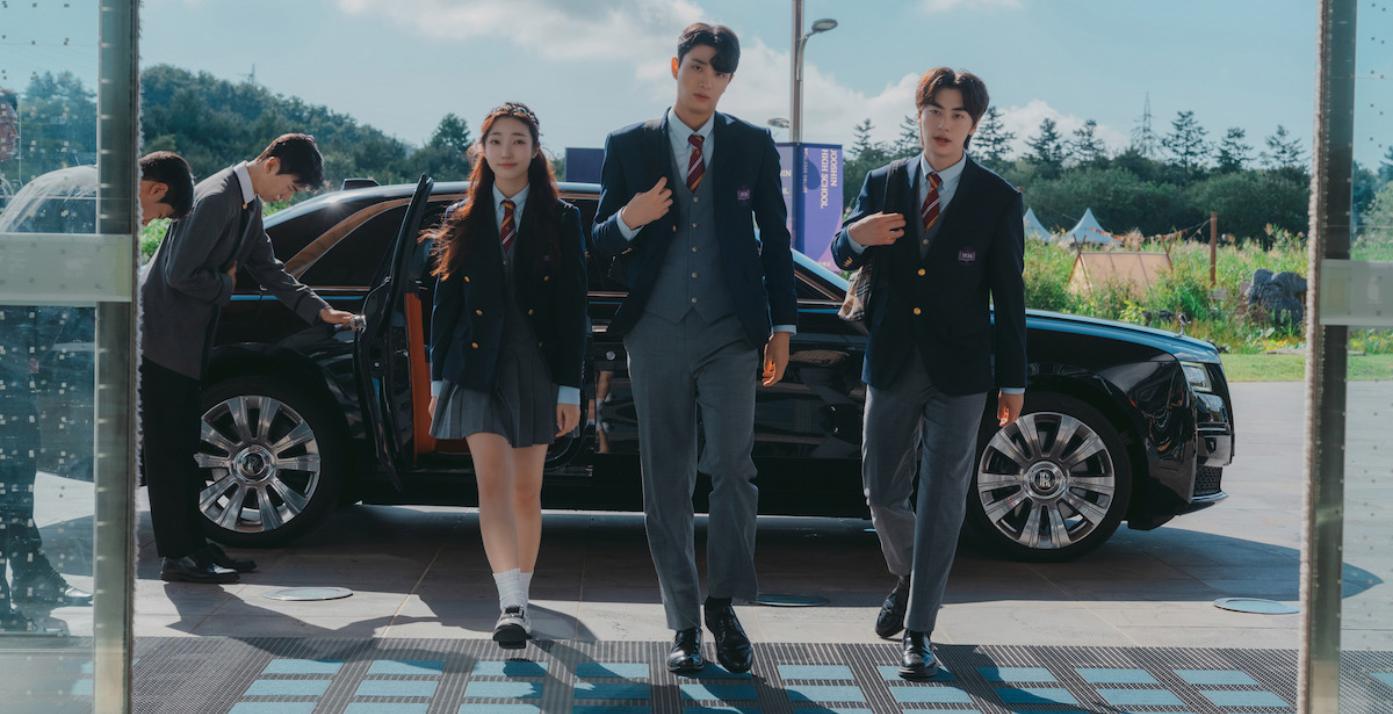
Unfortunately, not everyone has this depth. As the seemingly all-powerful Kim Rin-an, actor Kim Jae-won is miscast. Even though it’s clear Rin-an is the archetypal successor character, and not much else is done to fill in the blanks on paper, a more capable actor would have injected some level of personality to make the character stand out without relying on the cameraman. As is, Jae-won’s take on Rin-an is one-note and uninspiring. As the leader of the school, his performance fails to sell what is meant to be delivered here.
The same note can be given to Lee Won-jung’s Lee Woo-jin. He’s the son of a politician who is also engaged in an affair with the incredibly childish and antagonistic teacher, Han Ji-soon (Byeon Seo-yun). On paper, it seems like something to play with, but Won-jung’s performance flatlines. His character can easily be removed without having any significant impact on Hierarchy.
One positive thing Hierarchy has going for it is its visuals. Everything is sleek and pristine, with slow-moving sweeping shots establishing the wealth and opulence of Joonshin High. This visual style carries throughout the series and paints a picture of wealth that much older series like The Heirs lacked upon re-watch. Unfortunately, the visuals can’t smooth over the bumps of this series.
At seven episodes long, Hierarchy is a fast enough watch. But despite its slick stylings, there’s not enough to differentiate itself from the pack in a well-established genre. A more gripping storyline and better fleshed-out character performances likely could have bumped up its appeal more. Unfortunately, Hierarchy will likely fail to climb the ranks, missing a much-needed spark to make it memorable in a saturated Kdrama sphere.
Hierarchy is now streaming exclusively on Netflix.
Hierarchy
-
Rating - 4.5/104.5/10
TL;DR
Hierarchy will likely fail to climb the ranks, missing a much-needed spark to make it memorable in a saturated Kdrama sphere.


